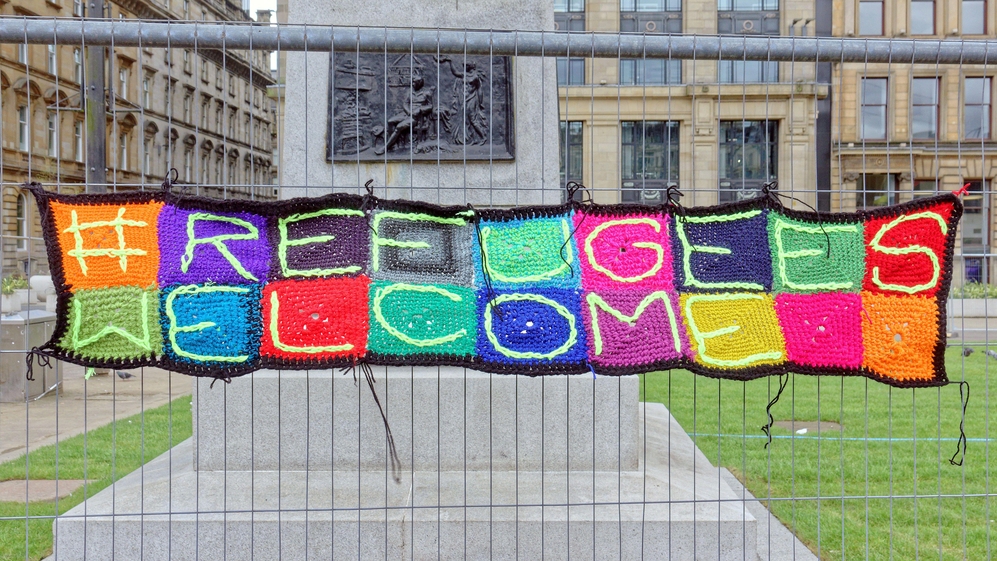Offshoring migrants to Rwanda is yet another example of the government’s immoral and ineffective anti-refugee strategy.
According to the International Organization for Migration, at least 52 people have drowned in the English Channel between 2018 and 2021. Over 28,000 people were smuggled across the Channel last year, and a further 3,000 have arrived in the country since January.
With the war in Ukraine, this will only increase. The generosity of the British public is evident, with people opening their homes to those fleeing Putin’s terror. The home secretary, Priti Patel, has said that the war is “monstrous and unjustified” – and reassured the international community that Britain will be “playing its part in responding to the terrible situation”.
Yet just two months after Ms Patel’s statement, the government has seemingly scrapped this obligation. Worse, they are evading responsibility by sending refugees to Rwanda; a policy that is both immoral and ineffective.


The scheme, set to affect all those who have entered the country since January, will offshore those arriving by irregular routes to Rwanda. Patel claims that this will deter people from unlawful means of migration; breaking the business model of people smugglers, while maintaining a robust immigration system.
This makes no sense. The home secretary had to issue a ministerial direction, such was the opposition from the department.
On top of this, over 160 charities and campaign groups have written to the government, urging them to scrap the “shamefully cruel” scheme.
The UK government, too, raised allegations of extrajudicial killings, disappearances, torture and “continued restrictions to civil and political rights” to the United Nations just last year. Knowingly sending vulnerable people to (or essentially threatening to) a country with questionable human rights is simply immoral and unacceptable.
Indeed, when a similar policy was adopted by Australia – where migrants were sent to Nauru and Papua New Guinea – 13 people died from violence, medical inattention or suicide in substandard immigration centres.
Furthermore, Rwanda is the most densely populated country in Africa – putting an immense strain on limited resources and stifling agricultural growth. As the African Union highlighted, Africa already shoulders 85% of the world’s refugees, whereas only 15% are hosted by developed countries.
This scheme is cruel and unjust on three fronts: it ignores our responsibility to the international community; subcontracts this responsibility to an already overwhelmed continent; and attempts to “deter” people with potentially diminished civil rights. Warnings of the scheme’s efficacy notwithstanding, Priti Patel’s adamance is truly baffling.
But this unwavering inanity is not unexpected. It is merely symptomatic of this government’s ever-growing anti-refugee strategy; evidenced by the Nationality and Borders Bill. The two-tier, differential treatment of those arriving by irregular means has no basis in evidence, nor does it consider key context about the current asylum system. If the government truly wanted to “save lives”, they would enable safe passage.
The rationale that the anti-refugee strategy will save money is also contentious. The Permanent Secretary already advised against the costly Rwandan scheme, while The Times have estimated a price tag of £20,000 to £30,000 for each migrant sent to Rwanda.
What’s more, the government has repeatedly dismissed calls to relax the right to work, which would allow asylum seekers to seek employment months after entering the UK. There is an untapped market of skilled and unskilled workers awaiting their asylum applications – all of whom could be contributing to their community and our economy in the meantime.
The scheme is a cynical distraction and the Conservatives are trying to distract from the cost of living crisis, the aftermath of partygate, and the culture of sexism that prevails in Westminster.
Refugees should not be punished for the government’s failures; whether this is a distraction from partygate, or an ill-thought method of fixing the asylum system. Subcontracting our responsibilities is humiliating, especially as a country that has always prided ourselves on humanitarianism.
People will continue to make the treacherous journey across the Channel until a viable alternative presents itself. I would advise the home secretary to act on her own words, and realize that prolonging the settlement of displaced people is “no longer an option for any humanitarian nation”.









